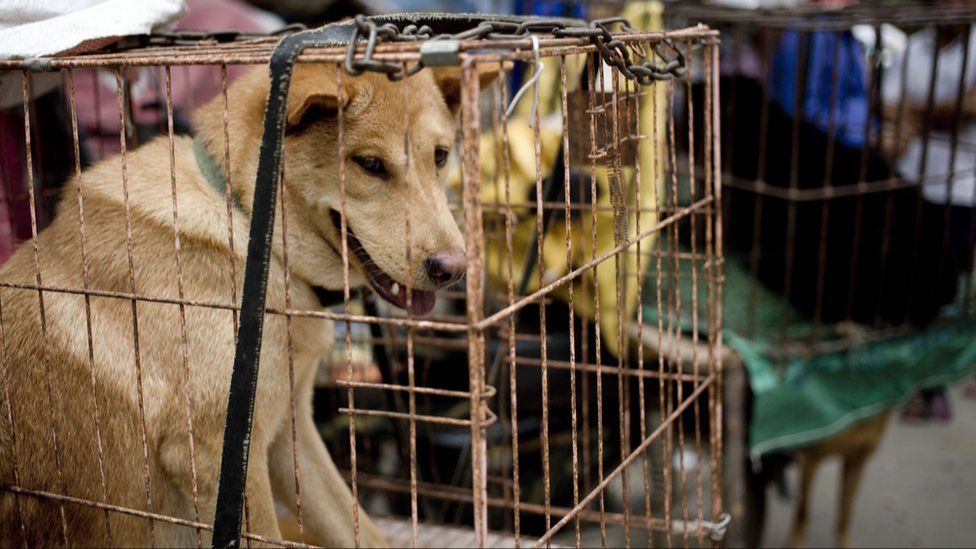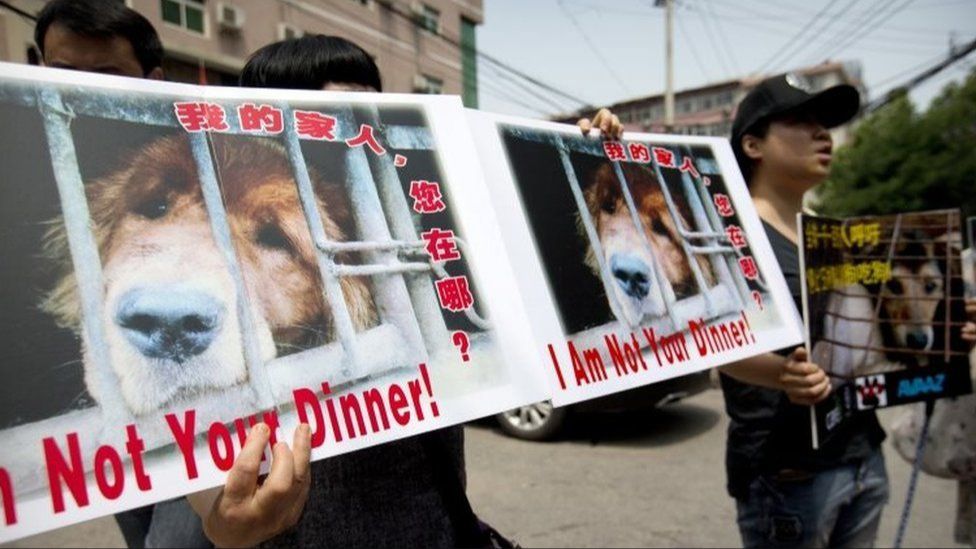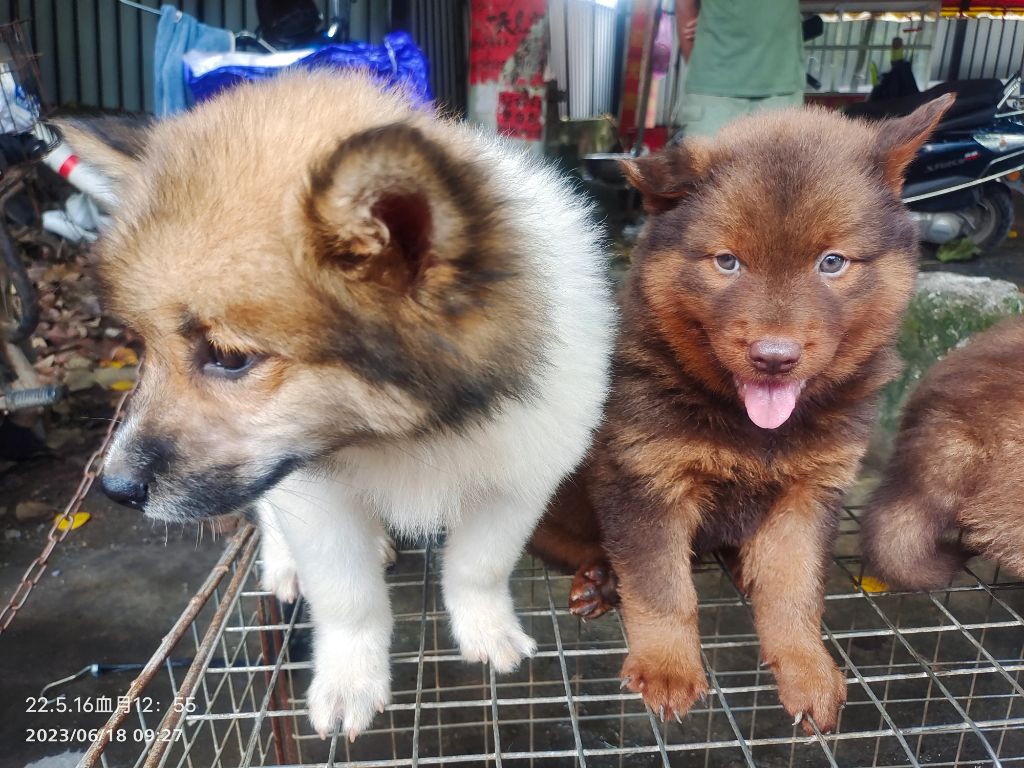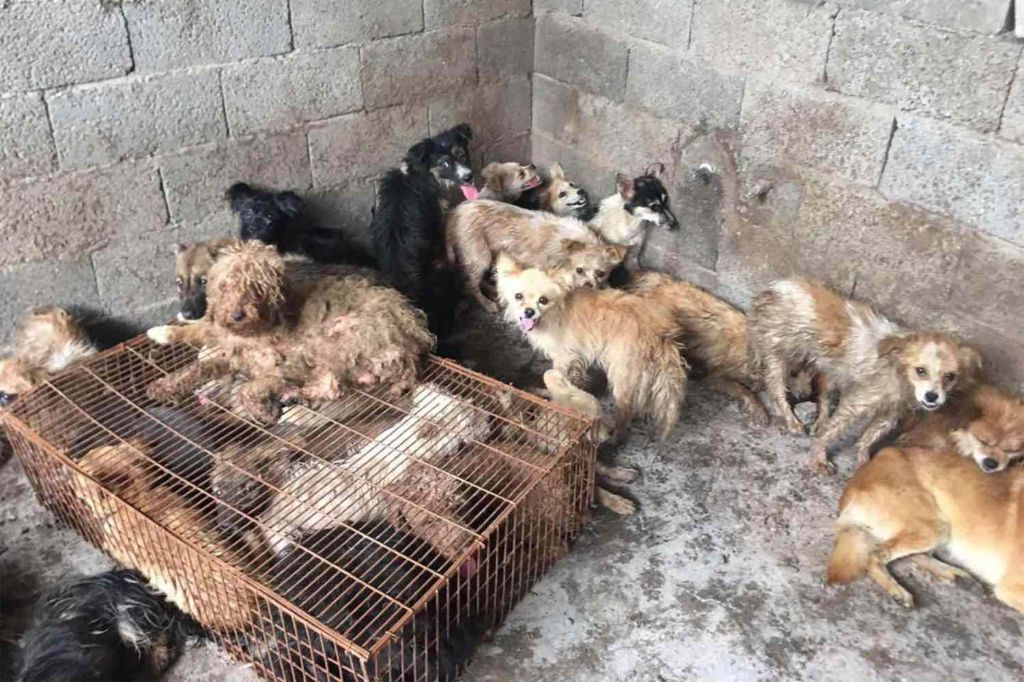Introduction
The Yulin dog meat festival is an annual event that takes place in Yulin, Guangxi, China during the summer solstice. It involves the slaughter and consumption of thousands of dogs as well as lychee and rice liquor drinking competitions. The 10-day festival has received intense international criticism for its inhumane killing of dogs and unsafe meat handling practices. While its supporters view it as a cultural tradition and important economic event, its opponents condemn the animal cruelty involved and are campaigning to end the festival.
History and Origins
The Yulin Lychee and Dog Meat Festival originated in 2009. According to the Wikipedia article on the festival, it was started by local dog meat traders as a way to boost sales during the summer solstice. The timing coincides with the local lychee harvest, hence the name. While eating dog meat has long been a part of certain regional cuisines in China, the festival helped popularize and promote the practice more widely. According to folklore, eating dog meat during the summer months can bring health benefits by warming the body and balancing yin and yang. The festival has grown significantly since its inception, with estimates of 10,000-15,000 dogs slaughtered each year for the event.
What Happens at the Festival
The Yulin Dog Meat Festival lasts for 10 days during the summer solstice and an estimated 10,000 dogs and cats are slaughtered and eaten during the event, though the numbers have declined in recent years.

The festival started in 2009 as a commercial event by dog meat traders to boost sales, taking advantage of the large crowds gathering to eat lychees and celebrate the solstice. Supporters say eating dog meat during the summer helps “ward off the heat and maintain a healthy body.” [1]
The slaughtering of the dogs takes place mostly at night or behind closed doors. But some vendors slaughter the dogs right at their market stalls. The dogs are often beaten to death with sticks and clubs in front of other caged dogs. This is thought to increase adrenaline which tenderizes the meat. [2]
The dogs are cooked in a variety of cruel methods such as being blow-torched alive, boiled alive, or skinned alive. Many dogs die from shock, blood loss, or suffocation before reaching the cooking pot. Dog meat is served in stews, roasted whole, or on skewers. Some believe the meat has health benefits and medicinal value.
In addition to dog meat, the festival serves lychees, liquor, and other dishes. The crowds gather to eat, drink, and celebrate the summer solstice, while dogs suffer immense cruelty.
Scale and Scope
The Yulin Dog Meat Festival has grown steadily since it began in 2009. Originally a small event, it has grown in recent years into a large festival with thousands of people attending, and many more dogs being slaughtered for consumption.
Estimates vary, but according to some reports, the festival saw 10,000-15,000 dogs killed in 2014. However in 2016, after growing pressure from activists, the number reportedly dropped to 1,000-3,000 dogs slaughtered.
The event now spans about 10 days during the summer solstice in June, with the main focus being the slaughter and consumption of dog meat. The festival draws significant crowds, with estimates of up to 10,000 attendees at the main market.
Vendors bring dogs stuffed in cages from across China to supply the festival. The dogs are kept crowded in poor conditions before being slaughtered in front of attendees. The festival has grown from a small local event into one drawing wider participation and media attention.
Controversy and Campaigns Against It

The Yulin Dog Meat Festival has sparked intense controversy and campaigns calling for its ban due to concerns over extreme animal cruelty. Many animal rights activists have condemned the festival as barbaric due to the inhumane treatment of the dogs prior to slaughter.
According to the Change.org petition to shut down the festival, thousands of dogs are subjected to cruel confinement and inhumane transport in cramped cages and deprived of food and water for days leading up to the festival. Furthermore, the dogs are often clubbed, stabbed, or boiled alive due to the belief it makes their meat more tender.
Major international animal welfare groups like NoToDogMeat have been campaigning for years to ban the Yulin festival, denouncing the abuse and petitioning the government to outlaw the dog meat trade. Activists emphasize that the extreme animal cruelty, the risks of disease, and the negative backlash from banning the festival outweigh any perceived cultural or economic benefits.
While some locals continue to defend the festival as their tradition and livelihood, opponents state that mass dog slaughter and cruelty has no place in modern civilization. Campaigns continue to pressure the Chinese authorities and raise awareness globally in hopes of ending the Yulin Dog Meat Festival for good.
Supporters’ Perspectives
Some supporters argue that eating dog meat is a long-held cultural tradition in Yulin and other parts of China. They view the festival as part of their cultural identity and reject criticism as Western imperialism trying to change Chinese culture and impose foreign values. According to one survey, over 70% of Yulin residents did not see banning dog meat as having a significant impact on their lives or culture [1].
Some supporters also argue the festival provides economic benefits to the city of Yulin. The festival attracts thousands of visitors each year, bringing revenue to local businesses through tourism and dog meat sales. Dog farming also employs rural farmers in Guangxi province. Advocates argue banning dog meat would hurt livelihoods that depend on the trade.
Status in Recent Years
The Yulin Dog Meat Festival has faced growing opposition in recent years, both within China and internationally. Animal rights activists have campaigned vigorously to stop the festival, and public awareness of the cruelty involved has increased. There are signs that the festival’s popularity is declining as a result.

According to local vendors and traders, the number of dogs slaughtered for the festival has dropped considerably in the last few years. In 2014, it was estimated that over 10,000 dogs were killed. However, that number fell to around 3,000 in 2015 and just 1,000 in 2016 according to the Humane Society International [1]. Activists on the ground have reported that the 2017 and 2018 festivals were similarly subdued.
The drop in sales and consumption of dog meat likely reflects changing attitudes and tastes among the Chinese public. With greater affluence, pet ownership has risen dramatically in China, helping to drive opposition to the dog meat trade. High-profile advocacy campaigns have also raised awareness and turned public opinion against the festival.
In recent years, the local Yulin government has distanced itself from the festival due to public pressure. It has imposed restrictions and discouraged vendors from openly slaughtering dogs in public. However, the government has stopped short of enacting a ban, despite calls to do so.
While the Yulin Dog Meat Festival continues to take place, its future remains uncertain due to growing opposition. Though the tradition still persists in Yulin, signs point to a gradual decline in popularity and scale.
Government Stance
The Chinese national government has not explicitly banned or restricted the Yulin Dog Meat Festival, but there are some regulations in place. In 2010, China’s Ministry of Agriculture proposed animal welfare legislation banning the consumption of dogs and cats due to concerns over animal cruelty and public health, but this has not been enacted into national law.
In 2011, Yulin banned parades and outdoor slaughter at the festival after pressure from activists, but the buying and eating of dog meat continues. Some restrictions were also placed on the sourcing and transport of dogs across provincial borders.
Local authorities in Yulin have gone back and forth on restrictions. Prior to the 2014 festival, the Yulin city government distanced itself from the event and stated it was not officially endorsed. But in 2015, government officials attended and sanctioned the festival.
While unsuccessful so far, there have been initiatives to completely ban the festival. In 2017, Representatives from the U.S. Congress introduced a House Resolution condemning the festival and urging China to ban the dog meat trade.
Some provinces and cities in China have banned dog and cat meat consumption, but currently there is no national ban in place. The Yulin local government seems reluctant to ban a tradition important to segments of the community. Thus, the national government stance remains unclear and inconsistent.
Future Outlook
The future of the Yulin dog meat festival is uncertain. While activism against the festival has grown enormously over the past decade, the local Yulin government continues to support it as part of the city’s cultural heritage. In recent years, the number of dogs slaughtered has declined, but thousands are still killed annually for the festival.
Animal welfare groups remain committed to ending the festival through education, rescue, and pressure campaigns. Major organizations like Humane Society International have worked to convince Yulin authorities to impose restrictions, regulate slaughter methods, and enforce animal cruelty laws during the festival period. Some activists rescue dogs directly from trucks entering the city.

However, many vendors depend on the festival for income and argue it is their legal trade. Some claim the campaigns are an attack on Chinese cultural practices. The Yulin local government sees the festival as too deeply embedded in the region’s history and economy to ban, despite national and global controversy.
While the Yulin dog meat festival may continue in some form, the tremendous growth of animal activism in China and shifting societal attitudes, especially among younger citizens, give hope that the festival’s days are numbered. Still, for the foreseeable future, animal advocates will likely keep up intense pressure to reduce the immense animal suffering perpetuated by this event. [1]
Conclusion
The Yulin Dog Meat Festival has faced increasing pressure in recent years from animal rights activists and the general public. While the festival was largely unimpeded in its early years, campaigns have raised significant awareness of the event. This public outcry seems to have impacted the scale of the festival, with estimates of dogs slaughtered dropping substantially from initial figures of 10,000-15,000 to around 1,000 in recent years.
The local Yulin government has distanced itself from the festival, emphasizing that it is not an official event. There are some signs that authorities are slowly introducing tighter regulations on the dog meat trade, such as requirements for health checks. However, the local government is limited in how far it can go without outright banning the practice, as eating dog meat remains legal in China.
While animal activists remain committed to ending the festival through advocacy and education, the Yulin Dog Meat Festival continues at a smaller scale. It seems likely the festival will gradually decline over the years, though bringing an outright end to the event presents difficulties given clashing cultural perspectives on dogs and the law allowing dog meat consumption. Continued activism paired with evolving societal attitudes, particularly among younger generations, provides the best opportunity for ending the festival in the long run.